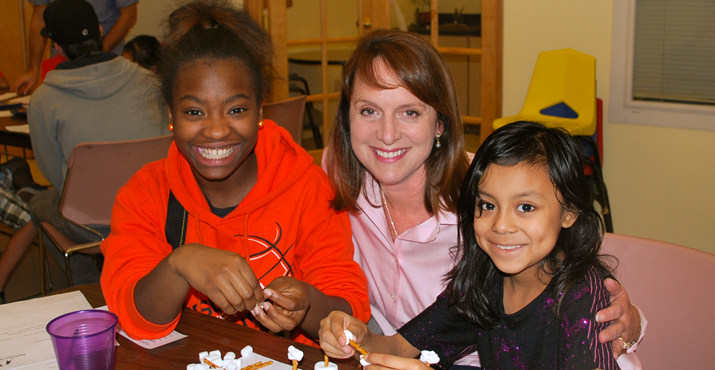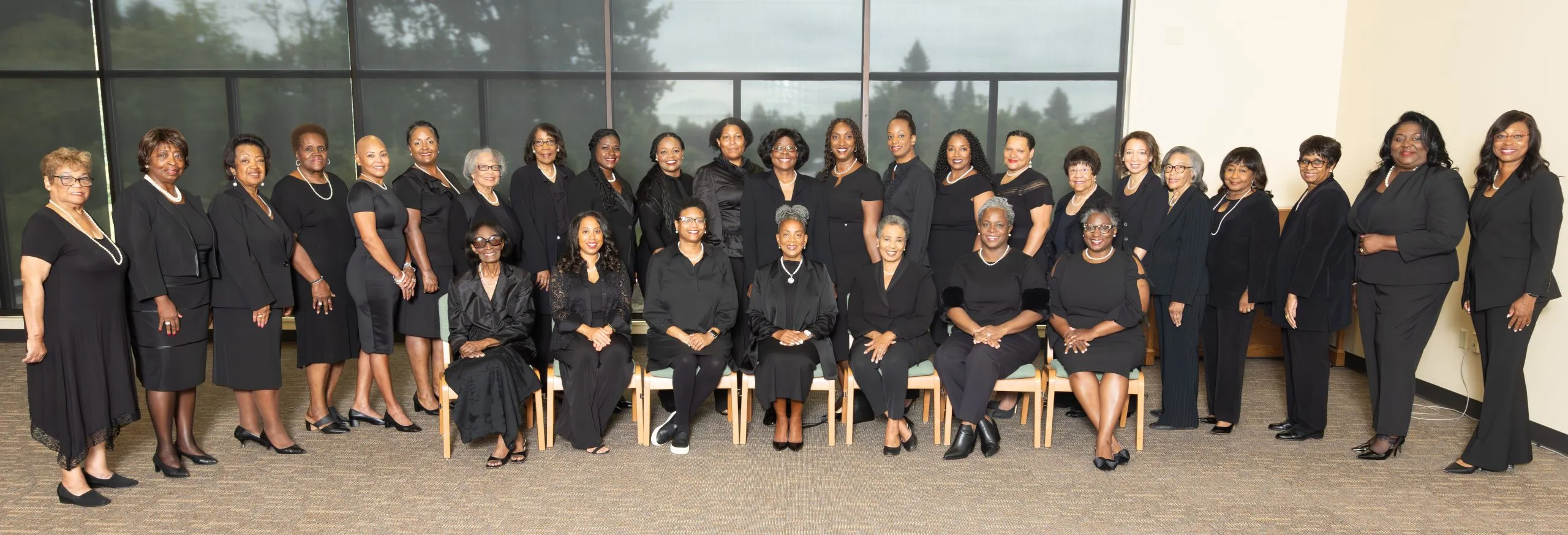Portland, December 31st, 2015. You can still make a last-minute tax deductible donation to charitable organization. The…
Do You Use the 10 Best Practices of Savvy Donors for Year-End Giving?


Beverly Young celebrates wildly after winning an exhilarating live auction bidding war to claim a surprise behind-the-scenes auction package for the hit NBC television series, Grimm.
Portland, OR. It’s time to focus on year-end charitable donations! On our partner’s page, there are live links to hundreds of your favorites. They’re listed by categories like animals, arts, and education. Please explore PortlandSocietyPage.com for ideas, and watch for our features about many worthy local charities. If you’d like to suggest your favorite nonprofit for a feature, contact us at info@PortlandSocietyPage.com


At Big Brothers/Big Sisters Columbia Northwest‘s Baltazar Ortiz Community Mentoring Initiative, editor Elisa Klein visited with Danielle and her program little sister, Kyara.
The website, Charity Navigator is a research tool for donors and evaluates how charities use money. The organization also offers these tips for smart giving:
- Be Proactive In Your Giving
Smart givers generally don’t give reactively in a knee-jerk fashion. They don’t respond to the first organization that appeals for help. They take the time to identify which causes are most important to their families and they are specific about the change they want to affect. For example, they don’t just support generic cancer charities, but instead have targeted goals for their giving, such as providing mammograms to at-risk women in their community. - Hang Up The Phone / Eliminate The Middleman
Informed donors recognize that for-profit fundraisers, those often used in charitable telemarketing campaigns, keep a large portion (in some cases all) of each dollar they collect (read our report about telemarketing for more specifics on the costs affiliated with this form of fundraising). Wise donors never give out their personal information – like credit card accounts, social security numbers – over the phone. If they like what they hear in the pitch, they’ll hang up, investigate the charity on-line and send their contribution directly to the charity, thereby cutting out the middleman and ensuring 100% of their donation reaches the charity. Taking it a step further, donors may want to reconsider supporting a charity that uses an inefficient telemarketing approach and instead identifies a charity that does not use telemarketing to raise funds. - Be Careful Of Sound-Alike Names
Uninformed donors are easily confused by charities that have strikingly similar names to others. How many of us could tell the difference between an appeal from the Children’s Charity Fund and the Children’s Defense Fund? Their names sound the same, but their performances are vastly different. Would you be surprised to learn that the Children’s Charity Fund is a 0-star charity while the Children’s Defense Fund is a 3-star charity? Informed donors take the time to uncover the difference. - Confirm 501(c) (3) Status
Wise donors don’t drop money into canisters at the checkout counter or hand over cash to solicitors outside the supermarket. Situations like these are irresistible to scam artists who wish to take advantage of your goodwill. Smart givers only support groups granted tax-exempt status under section 501(c) (3) of the Internal Revenue Code. All of the charities evaluated by Charity Navigator meet this basic requirement. - Check The Charity’s Commitment To Accountability & Transparency
In 2011, Charity Navigator added an Accountability & Transparency dimension to its rating system. It tracks metrics such as whether the charity used an objective process to determine their CEO’s salary, whether it has an effective governance structure, and whether it has a whistleblower policy. This data is critical because charities that follow good governance and transparency practices are less likely to engage in unethical or irresponsible activities. So, the risk that such charities would misuse donations is lower than for charities that don’t adopt such practices. - Obtain Copies Of Its Financial Records
Savvy donors know that the financial health of a charity is a strong indicator of the charity’s programmatic performance. They know that in most cause areas, the most efficient charities spend 75% or more of their budget on their programs and services and less than 25% on fundraising and administrative fees. However, they also understand that mid-to-large sized charities do require a strong infrastructure therefore a claim of zero fundraising and/or administrative fees is unlikely at best. They understand that a charity’s ability to sustain its programs over time is just as important as its short-term day-to-day spending practices. Therefore, savvy donors also seek out charities that can grow their revenue at least at the rate of inflation, that continue to invest in their programs and that have some money saved for a rainy day. All of this analysis is provided on Charity Navigator’s website for free, but when considering groups not found here, savvy donors ask the charity for copies of its three most recent Forms 990. Not only can the donor examine the charity’s finances, but the charity’s willingness to send the documents is a good way to assess its commitment to transparency. - Review Executive Compensation
Sophisticated donors realize that charities need to pay their top leaders a competitive salary in order to attract and retain the kind of talent needed to run a multi-million dollar organization and produce results. But they also don’t just take the CEO’s compensation at face value; they benchmark it against similar-sized organizations engaged in similar work and located in the same region of the country. To help you make your own decision, Charity Navigator’s analysis reveals that the average CEO’s compensation of the charities we evaluate is almost $150,000. In general, salaries tend to be higher in the northeast and at arts and education charities. Sophisticated donors also put the CEO’s salary into context by examining the overall performance of the organization. They know it is better to contribute to a charity with a well-paid CEO that is meeting its goals than to support a charity with an underpaid CEO that fails to deliver on its promises. (Check out our CEO Compensation Study for more benchmarking data.) - Start A Dialogue To Investigate Its Programmatic Results
Although it takes some effort on their part to assess a charity’s programmatic impact, donors who are committed to advancing real change believe that it is worth their time. Before they contribute, they talk with the charity to learn about its accomplishments, goals, and challenges. These donors are prepared to walk away from any charity that is unable or unwilling to participate in this type of conversation. - Concentrate Your Giving
When it comes to financial investments, diversification is the key to reducing risk. The opposite is true for philanthropic investments. If you’ve taken the time to identify a well-run charity that is engaged in a cause that you are passionate about, you should then feel confident in giving it a donation. Spreading your money among multiple organizations not only results in your mailbox filling up with more appeals, but it also diminishes the possibility of any of those groups bringing about substantive change as each charity is wasting a percentage of your gift on processing expenses for that gift. - Share Your Intentions And Make A Long-Term Commitment
Smart donors support their favorite charities for the long haul. They see themselves as a partner in the charity’s efforts to bring about change. They know that only with long-term, committed supporters can a charity be successful. And they don’t hesitate to tell the charity of their giving plans so that the organization knows it can rely on the donor and the charity doesn’t have to waste resources and harass the donor by sending numerous solicitations.
Recent Posts
2025 Portland Rose Festival Plans are Set
Portland, OR. The Portland Rose Festival has inspired the public to gather and celebrate against…
Portland Art Museum Exhibit Will Highlight Contemporary Art from the Collections of Jordan D. Schnitzer
Portland, OR. Opening in September 2025, the Portland Art Museum (PAM) presents Global Icons, Local Spotlight:…
VIPs Gearing up for Classic Wines Foundation Gala
Portland, OR. Organizers say the "Salon de Vin" benefit for Classic Wines is shaping up.…
Diamonds & Denim Gala Will Benefit The Links, Inc.
Portand, OR. The Portland Chapter of The Links, Incorporated, and the White Rose Educational Foundation…
Nonprofits Honored as Providence Health Plan Celebrates 40th Anniversary
Portland, OR. Providence Health Plan recently celebrated its 40th anniversary with a totally rad 1980’s…
Oregon Historical Society Hosts History Makers Gala
Portland, OR. The Oregon Historical Society’s (OHS) annual Oregon History Makers Awards & Dinner recognizes…


